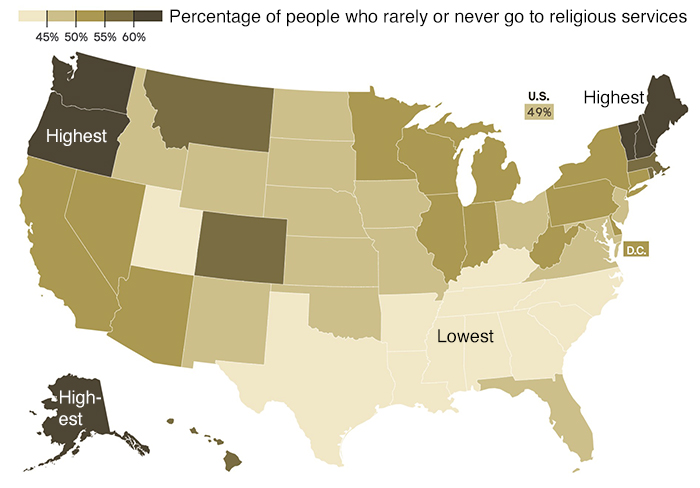

Yesterday was Easter, the holiest day in the Christian calendar. To celebrate it, both Joe Biden and Donald Trump issued messages. See if you can tell who wrote each one. Here is the first one:
My wife and I send our warmest wishes to Christians around the world celebrating Easter Sunday. Easter reminds us of the power of hope and the promise of Christ's Resurrection. As we gather with loved ones, we remember Jesus' sacrifice. We pray for one another and cherish the blessing of the dawn of new possibilities. And with wars and conflict taking a toll on innocent lives around the world, we renew our commitment to work for peace, security, and dignity for all people.
And here is the second one:
HAPPY EASTER TO ALL ... INCLUDING THOSE MANY PEOPLE I COMPLETELY & TOTALLY DESPISE BECAUSE THEY WANT TO DESTROY AMERICA.
Answer is at the bottom of the page. But here is a hint: Biden is a devout Catholic who goes to mass regularly. Trump's only use for churches is to use them as a backdrop for photo ops upon occasion, and also to sell Bibles.
As an aside, Axios published this map yesterday showing the percentage of people who rarely or never attend religious services. It is based on a survey of over 71,000 U.S. households:

As you can see, the entire South except Florida is a huge block where fewer than 45% of the population avoid religious services. On the other hand, the West Coast, New England, and Alaska have the most people not interested in religious services. In Alaska, the difficulty of getting there could be an issue, especially in the winter. In the West Coast and New England, by contrast, the reason is that the people there are godless heathens. At least, that's what we heard.
What strikes us immediately is the correlation between interest in religion and political conservatism, and vice-versa. The redder the state, the more likely people attend religious services. Of course, correlation isn't causation. Do people vote Republican because the leader of their church tells them to, or do Republicans naturally seek out churches to find like-minded souls?
The Pew survey that led to the map also asked people about religion's role in public life. More than three-quarters said it is shrinking. Many were unhappy about that. This is just another bit of evidence about why rural areas, which tend to be more religious than urban areas, vote Republican: They feel their lifestyle, which includes going to church, is no longer seen as "normal," and they are fearful about the future. Republicans espouse "traditional" values and claim they can stop the tide, so they attract people who want to at least try. But as King Canute supposedly demonstrated, that is easier said than done. (V)